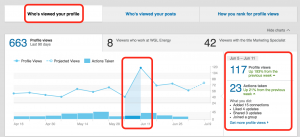
According to Deloitte’s 2015 Global Human Capital Trends Report1, the number one concern for CEO and senior HR leaders is “culture and engagement”.
Creating a good company culture where employees can be their best self takes a lot of work.
Everyone needs to be on board, and there needs to be a concerted effort to make sure your organization is the best place to work.
Once you figure it out though, sky’s the limit.
You’ll be attracting and retaining the best talent, you’ll have happy and productive employees, and your organization will see success like its never seen before.
I’m very fortunate that I’ve been able to interview some of the smartest people in the company culture field.
People like Kevin Kruse, Shawn Murphy, Gabe Zichermann. People from Zappos, Netflix, Dale Carnegie, and other amazing firms.
Throughout the hours of interviews I’ve done with all of these people, I’ve learned an incredible amount about what it takes to create a good company culture.
Here are 9 amazing lessons that you can learn from them.
But first…
Free Email Course: Become a better leader in 11 days and be the type of leader that employees admire and respect.
Core Values Guide Your Culture
One of my favorite interviews was with Sarah Bird, CEO of Moz, a marketing software company about their TAGFEE core values.
In our chat, she says:
TAGFEE is how we talk about our core values at Moz.
And our core values are not the same things as our culture, because culture is how decisions get made every day at Moz, it’s behaviors we’d live by and work by.
But the core values let us judge, whether or not, we think the culture is healthy or not; whether we’re on the right path, whether we’re doing the right things.
You can watch our full interview right here:
Connect With Your Employees
In one of the smartest interviews I’ve ever done, Amy Roberts from Dale Carnegie teaches leaders how to develop that emotional connection with employees.
When I asked her about the importance of training managers in emotional intelligence, she said:
It’s really just building that connection with people. It’s having real transparent dialogue, which sometimes surfaces conflict, and that’s okay.
You embrace it and you move forward with it. And I think whether it’s using emotional intelligence or understanding how to deal with different personalities, styles, at the end of the day the foundation of all of that is our ability to see things from other people’s point of view.
Our ability and our desire to better understand the people that we’re working with, the people that are working for us, the people we’re working for, and really understand what makes them tick, understand what scares them, understand what anxieties they have.
You can watch our full interview right here:
The Future Of HR Is Developing People
When I spoke with Ben Peterson, CEO of Bamboo HR, he told me about his vision for the future of HR.
What he says is that as technology gets better and more powerful, it will help HR leaders focus on what they actually should be focusing on.
He says:
I think the role of HR is going to change. It’s actually going to be what it was meant to be: to focus on people, to focus on culture, strategically impact the business as it grows, mapping out roles and responsibilities, training, and employee engagement…
HR will never ever be able to handle data entry again because they’ll never have to. It’ll all be automated and streamlined. They’ll actually have a much more enjoyable role, in my opinion…
I love the attention on the space because the impact is big for everyone especially employees, especially the quality of life of employees, and businesses will just be better. I think that you’re going to see technology change a ton, but I think you’ll see a lot of emphasis in HR on learning ways rather than figure out how to move data around or run a report. They’re actually going to be able to truly develop and engage employees and engage people.
You can watch our full interview here:
What Makes Great Work?
Mark Cook from O.C Tanner conducted the largest study ever on what makes for great work. In our interview, he shares five characteristics of people that produce great work, but it was the fifth characteristic, “deliver the difference”, that really stood out at me.
What that means is instead of doing the bare minimum of work, trying to make a difference for whoever you’re doing the work for (your boss, your client, etc.).
He told the story of a janitor in a hospital, and I often use this story when talking about finding purpose in your work.
A gentleman named Moses who was working with a mother, Mindy and her son, Mackay and the family, and instead of coming into the room abruptly and making a lot of noise, he really focused on being quiet and easing into a conversation with this small boy. Every time he came in to empty the trash, he would give him words of wisdom and words of encouragement. Like, I can see that you’re eating now. You know when you start to eat, that means you’re getting better.
You’re going to lick this sickness.
He would give him these small encouragements, and it lifted not only Mackay the patient, but it lifted the parents so much that he was really making a difference from his role as a janitor because he saw himself as part of the healing team, and he saw himself not just getting the work done and moving on to the next room, because that’s a little more akin to sending the work in an email or shipping the package or hoping it gets there or getting the check marks on your task list, but that’s not what we saw in award winning work.
In award winning work we saw people following their work all the way through the experience of the other person. That’s why we call it deliver the difference. So they would see, and get feedback, and look at faces and see if they’re actually delivering a difference.
You can watch our full interview right here:
The Work-Life Balance Trap
I was lucky enough to get to interview Jody Thompson, one of the creators of ROWE, or the Results Only Work Environment that measures results and not things like time spent at a desk.
When I asked her to explain the story of how her and her partner (Cali Ressler) created ROWE, she explained it like this:
Frankly when you take a look at what people want in an organization, what do people really want, we sat there, and we looked around, and we said people really don’t want flexibility.
What they really want is they want control over their time. And flexibility does not give people control over their time. What flexibility does is it gives managers more control over people’s time.
And so what we were seeing is we were seeing that people were getting themselves into a trap of not really getting work life balance, and not really getting what they wanted. And what we saw too was it was not good for the organization, because what people were focused on was getting time off, getting to work from different location.
They were focusing on things that weren’t relevant, and nobody knew what their work was.
So managers are saying “Well, if all of my people are working from different locations, how am I going to know what they’re doing?” And we said, “Well how do you know what they’re doing now?” Well, they looked at us like oh yeah; we kind of don’t know what they’re doing now. So then we started to think to ourselves well here’s all these people coming in everyday, putting in their time and nobody knows what they’re doing.
So we have this huge problem in organizations all over the world where we’re all focusing on the wrong thing. For Results Only Work Environment is one of those things that’s born of the idea that what we really need to do is stop managing people, and start managing work. And what that requires is 100% autonomy, 100% accountability.
You can watch our full interview here:
Help Employees Develop Outside Of Work
I highly recommend that everyone watch the video interview I did with Shawn Murphy from Switch and Shift.
Shawn is one of the most well respected thought leaders in HR, and recently wrote a book called The Optimistic Workplace.
The whole purpose of Switch and Shift is to talk about the human side of business and put the focus on people over profits.
Towards the end of our interview, we were talking about his book and about professional development. He told me a story about the wrong type of leader:
I’ll tell you a quick story about this. The reason why I left to go on my own as a consultant was I was working in HR for a Fortune 500 company here in California and I was responsible for revamping the tuition reimbursement program. So, we were paying money for people to go to college. And this was probably about eight years ago.
And one of the things that was on there was if you, Jacob, wanted to take guitar lessons, we would pay for your guitar lessons. And the logic is that if you are happy overall in your personal and professional life, you’re going to end up even more engaged and you’re going to do a better job at work.
Well, the executive looked at me and says, “Shawn, we are not here to help people self-actualize. I’m not paying for anything if it’s not related to that person’s job.” Well, what she essentially is saying is we’re only going to develop you in your current role. Anything outside of that role, we’re not paying for.
And she’s also ignoring the fact that you’re a whole person, right? You’re not an employee, you’re not a digit on the balance sheet. You’re a person with interests both personally and professionally.
And when she told me that I thought I can’t work for a company who doesn’t understand that learning isn’t contained to what my job asks of me. How can I become a better person, how can I become a better professional in the work that I do.
And I think organizations, when they get this, that’s where they invest the learning dollars. Is how do I help Jacob become a stronger employee and a better person? And if that means paying for your guitar lesson and that makes you happier here at work, damn it. Let’s do it.
You can watch our full interview here:
Make Gamification About Collaboration
When I wanted to interview someone about gamification at work, I knew it had to be Gabe Zichermann. If you know anything about the gamification industry, you know that Gabe is THE guy you need to talk to.
Many companies set up gamification programs, so I had to ask him what he finds the biggest mistake companies make when setting up these programs.
Well, the number one thing that I think people often make a mistake about the workplace is that gamification is about competition. Companies love to try to get their employees to compete for stuff. They love that. Let’s make a leaderboard out of things and get the sales team to battle it out and let’s put one team against the other and one person against the other and see who can do the best.
So, one thing is that competition can actually be a very powerful force, but it’s by no means enough, and also, it’s kind of a turn-off for some people. Some people really don’t love competition. It’s not necessarily their dream thing to do. So the first thing is, let’s not lean too heavily on competition. Let’s not make games all about competition. Let’s also make them about collaboration right and about working together. I think that’s one big mistake that companies make.
His number two mistake was that managers just assume employees will do something because it’s “gamified”. Check out our full interview here:
Treat Every Employee With Respect
Mark Babbitt, founder of YouTern, cofounder of Switch and Shift, and author of A World Gone Social is one of the smartest people I ever got to interview.
His book, and much of his speaking now is all about social leadership, which is an important concept for all leaders to understand.
Here’s how Mark explains it:
First of all we need to acknowledge that social is not Twitter, it’s not Facebook, it’s not a tool, it’s not even a technology.
Social and social leadership is a mindset. It’s radically different than what most of us learned in business school from our mentors or from our parents.
It’s all about active listening and collaboration and getting the right people in the right room at the right time, regardless of what their title is or longevity or experience levels.
It’s what genius do I need in the room right now to solve the problem in front of me or to rise to the challenge in front of us. And so it’s just a different mindset. It has nothing to do with tweeting or posting or sharing. It’s all about letting the world in and capitalizing on the collective genius in the room.
Leaders need to be creating a more inclusive environment for everybody, regardless of role, experience, age, or any other factor.
You can watch our full interview here:
Empower Your Employees
I have to admit that I was surprised at how good of a culture TELUS has. Usually, telecom companies don’t have the happiest employees, and call centers are notorious for being high turnover, low engagement environments.
When I asked Dan Pontefract, Chief Transformation Officer at TELUS about this, he explained that the key difference between TELUS and their competitors was how much they empowered their employees.
He says:
Often what I hear, anecdotally, is that certain call centers may not have that type of trust or empowerment to allow the team member to actually address what maybe the issue at hand, for those that might have a problem in their home, in their cell phone or whatever the case may be. Over here, because of the TELUS leadership philosophy, our values, our attributes, our fair process, our belief in the customer, and, thus, our belief in the team member to address a customer’s issue … you know, we’re not interested in call handle times. If it takes a long time to handle a problem, well, guess what.
Our people are empowered to do so. And they’re empowered to fix it in the right way where they might actually have to do something that they might not have done before, and that’s okay because we trust our people to do what’s right to put our customers first. That’s really a distinguishing factor. We believe that culture is a competitive advantage and it’s not demonstrated any better or any worse than in our call centers, because there is where you’re getting that front line, you know team member first, the customer first interaction.
You can watch our full interview right here (highly recommended!):
Free Email Course: Become a better leader in 11 days and be the type of leader that employees admire and respect.
Any Lessons On Company Culture You Want To Share?
If you have any good tips or lessons on building a company culture, let us know in the comments below!
Business & Finance Articles on Business 2 Community(76)
Report Post





